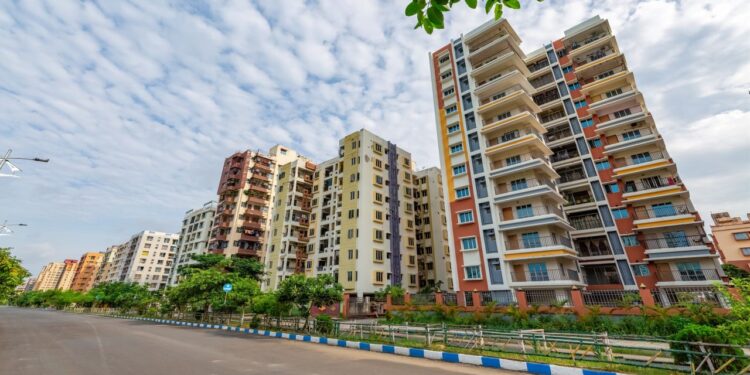Is it better to buy a house or rent one? The age-old question continues to divide experts, with strong arguments on both sides.
Financial planner Harshvardhan Roongta believes that every individual should aim to own at least one home for personal security. “If you can afford it, you should at least have one house for yourself—whether for current use, future use, or simply as a fallback,” he said, calling homeownership a modern expression of roti, kapda, makaan.
Gulam Zia of Knight Frank India, however, remains firmly in the rent camp—a view he says he has held for over a decade. “We connect too much emotional value to owning a house. The moment I look at it purely as a financial asset, it becomes a poor investment,” Zia said, citing low returns and poor liquidity.
While Roongta stressed affordability and non-financial benefits—like a safety net in uncertain times—Zia highlighted the opportunity cost of locking funds into real estate, especially in high-cost cities like Mumbai. Both agreed that the decision ultimately depends on personal circumstances, with clear-eyed financial planning at its core.
Below is the excerpt of the discussion.
Q: In one word, buy or rent?
Roongta: I would say buy. If you can afford it, you should at least have one house for yourself. It could be for current self-occupation, future self-occupation, or you may just keep it as a last resort, saying, “I have a roof over my head.” If everything goes wrong, at least I have a house, the roti, kapda, makaan, the basic elements. I think one house you should own, and the rest can be treated as investments, where you evaluate pros and cons accordingly.
Q: So, Gulam, where do you stand on the buy versus rent argument?
Zia: In one word, my answer is: rent. And that answer hasn’t changed in 10 years.
Q: We have to get into second-order, third-order implications and issues. What’s the starting point? Because for most people, owning a real estate asset is very emotional. There’s an emotional connect to it.
Zia: That’s true. When we look at India walking into the next century, we’re talking about a high-growth economy and so on. So again, the question is: if I look at developed economies like Europe and the US, what is the trend? The majority of people rent. My problem is, we carry this burden that’s been with us for decades, if not centuries, we connect a lot of emotional value to a house. The moment I disconnect from that, the moment I look at it purely as a place where I’m locking in money for 10, 20, or 30 years, it becomes a bad investment due to very poor liquidity. In that situation, if other asset classes are giving me double-digit annual returns, why would I get stuck with something offering 5–6%? The logic, to me, is simple: rent it is.
Q: You’re saying something important, 5–6% appreciation. The traditional mindset has been that you buy a house and over generations, three or four decades, it becomes a significant wealth-building asset. So, bust the myth or confirm the reality: does a house really treble in value over 30 years?
Zia: Those are very few and far-between examples. For every such instance, you’ll find hundreds on the other side where people have burned their fingers. Typically, we eulogise the successes and don’t talk much about the failures. But if you look at the weighted average of both sides, you’ll agree with me, it’s not such a rosy picture when it comes to investing in real estate.
Q: That’s a very important distinction. The purpose of this conversation is not to talk about residential housing as an investment. We’re talking about buying a house for self-use, whether you stay in it now or plan to move in a few years down the line. Harsh, let’s go over the pros and cons, and how do you start planning to have that one house?
Roongta: As a form of investment, there are better options to put your money into. As Gulam said, there are financial assets that will grow much faster. What we’re talking about now is that one house that you plan to stay in, now or in the future. I’m clearly an advocate of the theory that you should have one house of your own. It may not be in the same city you’re living in now, but it should serve as a backup in case everything else goes wrong. You know you have a roof over your head to house yourself and your family safely.
Now, coming to the pros and cons: mathematically, it doesn’t make sense. If you put numbers to it, you’ll always be better off investing in financial assets. Say, for instance, the cost of a house is ₹1 crore. You can rent it for about 2% annually. So, if you instead put that ₹1 crore in a bank deposit, earn 6%, and pay 2% as rent, you still enjoy the same cost.
But we’re not talking about that debate now. We’re talking about non-financial factors. Why do I say that? One, it becomes your safety net. We assume we’ll always earn, always have a job. But life can throw curveballs, job loss, disability, anything. If I’m not in a position to pay rent, then what do I do? If I have a house of my own, at least I know I won’t be homeless.
Q: But you’ll still be paying the EMI on the house, right? Unless it’s bought outright.
Roongta: True, and that brings us to affordability. Don’t stretch yourself beyond your means. Buy within your affordability. Plan it well. In case of job loss, not much can be done, but in case of disability or death, you can have insurance to take care of your loan liabilities. My point is simple: roti, kapda, makaan, this has been the foundation for generations. I firmly believe in buying that one house, if you can afford it. You may not want to stay in it today in the city that you are working in, but maybe in a more affordable city where you see yourself living in the future.
Q: Gulam, does your buy vs rent argument change by city? In Mumbai, where property is expensive, is renting the better option? What about Tier 2 and Tier 3 cities?
Zia: It’s not just a matter of affordability. Regional variation affects this debate because it depends on how a city treats its migrant population. For example, the best rental yields globally are in the Middle East, especially Dubai, because a majority of the population is expat. In India, cities like Bengaluru, Chennai, Hyderabad, and Pune have huge rental demand due to tech jobs. The absence of an organised rental housing policy means individuals buy homes and rent them out. So that also affects the equation.
Q: So, simplify this. For India, say we take a few cities, what’s the logic from a consumer’s point of view when choosing between a ₹3–4 crore home loan versus renting the same place?
Zia: It boils down to affordability. In Mumbai, which is extremely expensive, renting is the clear choice. In Hyderabad, even though rental supply is high, property is affordable, so buying is an option. But again, if you’re not from Hyderabad, do you really want to own there? The sheer numbers say that in cities like Mumbai or Gurgaon, renting is better. In Pune, Hyderabad, or Chennai, you can consider both. Still, I go back to my original point: rent is the better option.
Q: But now let’s expand on affordability. Harsh, say your dream home costs ₹10 crore. Not everyone can afford that. What are the thumb rules for financial planning? How do you know what’s affordable?
Roongta: From a financial standpoint, your EMIs should not exceed 50% of your net take-home income. Not your CTC, just your in-hand salary. If your EMI is within that limit, it’s within your affordability. If you go beyond that, other goals, like saving for retirement, children’s education, etc., get compromised.
Start working backwards. If 50% of your income is ₹50,000 per month, that makes you eligible for a loan of approximately ₹50 lakh. If a house in your current city isn’t affordable, consider a city you may move to in the future. Eventually, it should be for self-use. We’ve seen many cases where having that one house has helped in non-monetary ways, like a divorced daughter returning home, or kids not yet settled. Rent payments rely on income. With careers being volatile, income can disappear suddenly. But when you own a home, you’re not under the threat of eviction due to unaffordable rents.
So yes, buy one house, but keep the affordability factor in mind. Don’t go overboard. The moment you do, everything else, retirement, kids’ education, gets disrupted. Stay within limits. Know exactly why you’re buying. It’s not an investment, it’s for self-consumption.
Q: And make sure your total EMIs, including your home loan and any other loans, don’t exceed 50% of your net take-home income.
Roongta: And if there are two earning members, then you can combine both incomes to calculate affordability.
Watch accompanying video for entire discussion.













